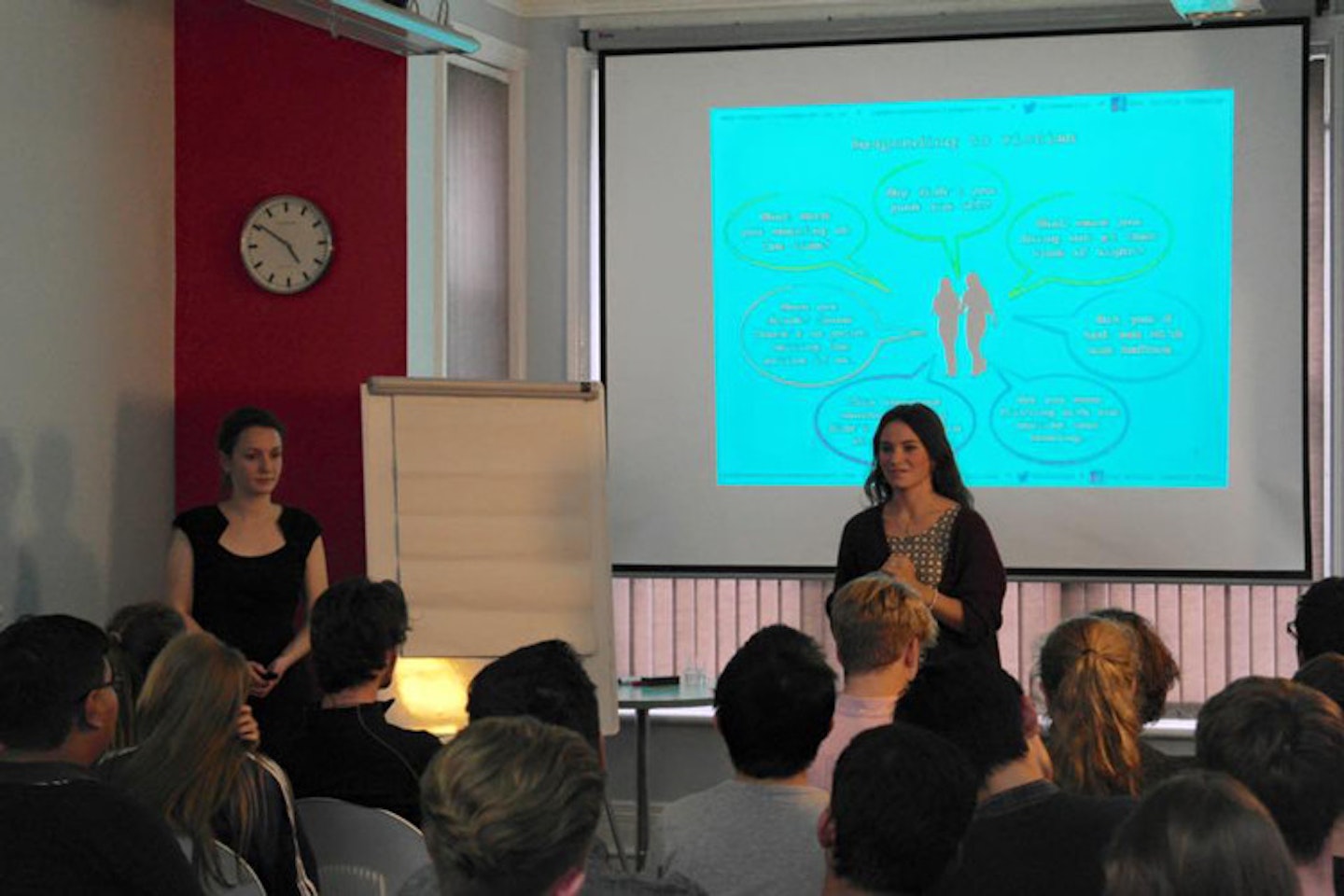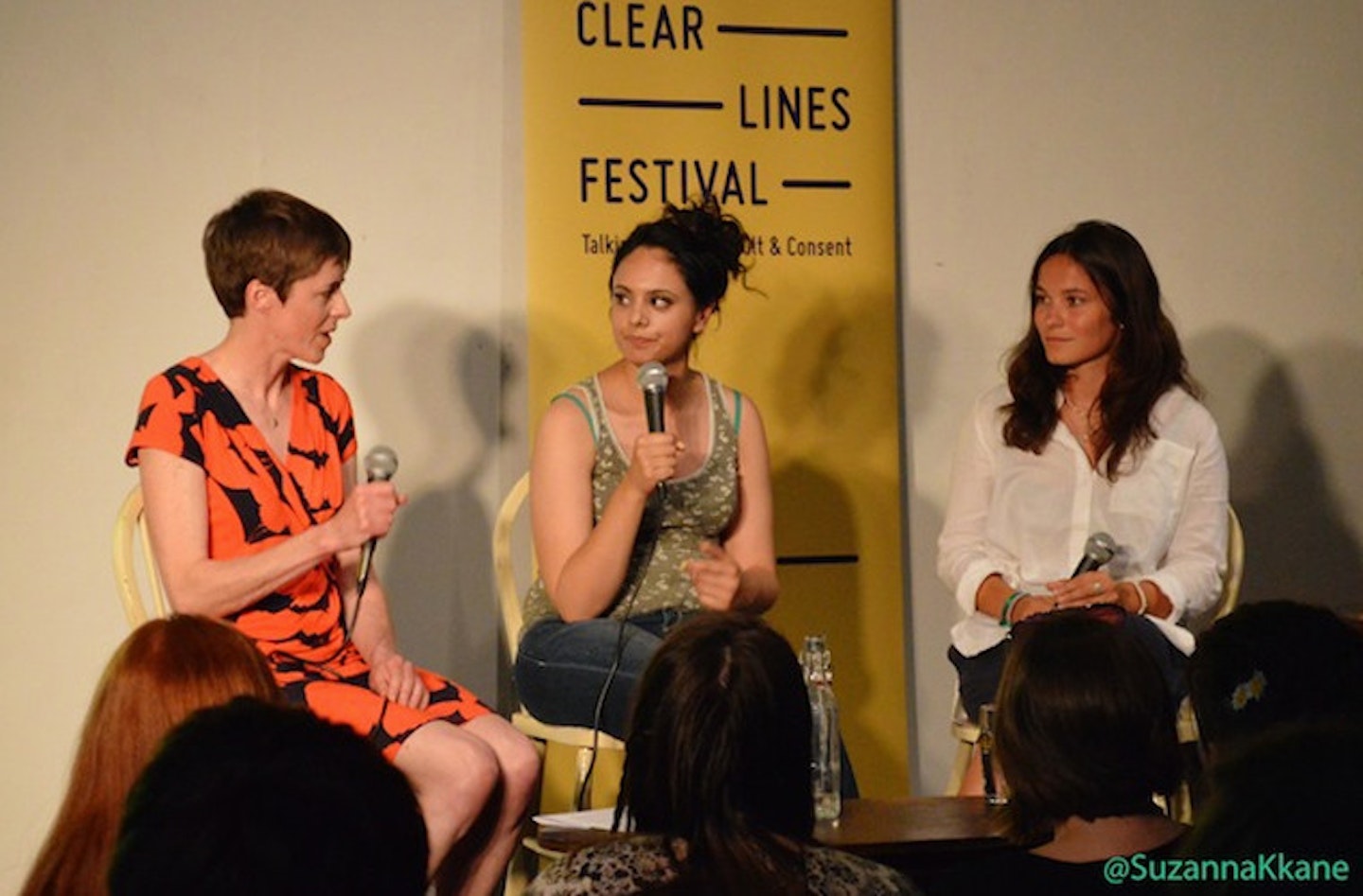In April this year, after I spoke publicly about my own experience of sexual assault, I started the #NotGuilty campaign against sexual violence and victim-blaming. I wanted to write about my experience both for myself, as a cathartic exercise, but also to reach out to others and send the message through the campaign that no survivor is alone and that there is no shame in speaking out and getting help.
The campaign sparked a national conversation in the media and amongst survivors who had previously felt silenced on, or made to feel guilty about their own sexual assault. I was incredibly struck at how quickly the campaign took off. The attention it garnered proved how novel it still is to talk openly about sexual assault and rape, which in itself was one of the problems that we were trying to tackle.

Many survivors wrote in saying that simply having a platform to make their voices heard, and seeing others speaking about the issue, had made them feel less alone and helped them realise that it is okay to seek help. One contributor noted: ‘I have read many of stories posted on here and I feel more hopeful that if so many women can move forward, then I can too. I feel inspired by many and hope I can be as strong as them some day, and I’m sure I will.’
The conversation surrounding sexual assault was not only for survivors, but also for potential bystanders and for those who had not previously engaged with the issue. Just minutes into a consent workshop that I facilitated during Oxford’s Fresher’s Week, it hit me just how necessary such discussions are.
Recalling the minimal sex education that I received at school, it was hardly surprising that all of the students told me they had ‘never had consent education before’. But we should be shocked at how education is failing students on this issue. Many students consistently guessed figures for sexual assault wrong because they had no idea how common it was, and didn’t realise that some of the more complex scenarios we gave them to grapple with – such as one where the victim was unconscious from alcohol - were instances of rape. It was encouraging seeing attitudes changing and ‘grey areas’ being cleared up in the course of the workshops.

It might seem disheartening that there was a need for the Clear Lines festival this summer, the UK’s first festival devoted entirely to exploring themes of sexual assault through the arts and talks, but it was a hugely positive step towards making itself unnecessary. It normalised discussions of assault through approachable forms (even comedy!) because it didn’t want to preach to the choir, instead aiming to get any person randomly selected off the street thinking and talking about sexual assault and how to combat it. Shortly afterwards, in August, the My Body Back campaign set up the first NHS clinic especially designed for women who had experienced sexual assault – another revolutionary ‘first’ for anti-sexual assault campaigns that filled a vital gap in support services for survivors.
Even supposed backlash to anti-sexual assault campaigns have arguably helped to open up dialogues about sexual assault and rape. George Lawlor, a Warwick University student, wrote an article earlier this year for The Tab condemning consent workshops. Holding a sign saying ‘This is not what a rapist looks like’, he made himself out to be the victim, proclaiming that this was ‘the biggest insult I’ve received in a good few years’. But he was soon reminded that it is much worse to be assaulted than to be asked to discuss consent, as his comments backhandedly helped to generate momentum for anti-sexual assault campaigns, fuelling discussion around the issue. Campaigns that have been running sex education classes across the country this year, such as the #NotGuilty Campaign, The Schools Consent Project, Good Lad Workshops and multiple student unions, were simply prompted to re-affirm the importance of consent in our sex education, such as our statement at the #NotGuilty campaign in solidarity with consent workshop facilitators. Outside of activism, many individuals were engaged with the issue on social media who may not otherwise have thought to think about these issues.
Culturally, it does seem as if we are gradually taking steps in the right direction when it comes to normalising discussion surrounding assault both in the media and our everyday conversations. Public figures have increasingly contributed to the discussion, such as Lady Gaga releasing the harrowing song Till It Happens To You this summer, which references her own experiences of sexual assault. It stressed how common an issue assault is on campus, and also helped to humanise survivors in the media rather than branding them as just statistics. Stoya speaking out recently about her ex-boyfriend James Deen allegedly raping heralso helped to quash myths that rape can’t happen in relationships, or that those in sex work or the porn industry cannot be raped – both of which are dangerous misconceptions that too many people still hold.
Trying to measure the success rates of anti-sexual assault and rape campaigns is incredibly difficult, because how do we measure success? UK crime statistics have documented a soar in the number of police-recorded sexual offences in 2015 in England and Wales from previous years, increasing by roughly 20,000 in 2014-5 compared to 2013-4. These figures might seem depressing, but we can’t be sure if it is incidents of assault that are increasing, rates of reporting assault that are increasing, or a combination of the two. More people reporting incidents may show they have more confidence in being believed.

Though we might not be able to measure the success of anti-sexual assault campaigns precisely, we can be sure of one thing – that sexual assault is still happening on a colossal scale. Though we have had some major breakthrough addressing stigma and support for survivors, we also need to address the problem that so few wish to talk about – the perpetrators themselves. In 2016, I want to see public attention also focusing on what needs to be done to stop sexual violence in the first place, as well as how we can support survivors.
Compulsory sex education in schools is a policy many campaigners are increasingly trying to push for, but we need to put more pressure on the government for this. Attitudes towards sex first begin to develop at around 11-15, so it makes sense that consent is taught at this level, before it is too late to change attitudes.
As well as offering support and solidarity for survivors, some lesser-known charities and campaigns also exist for people who have dangerous sexual attitudes and actions. The work of organisations such as Circles UK and Respect also needs to be pushed further into the public sphere so that more people can get help for themselves or others before they offend, and so that we can all learn to recognize the behavioral warning signs of offenders. Here again, the government has a role to play in making sure that these services remain sustainable.
The immense cuts to domestic violence services announced on the Elimination of Violence against Women Day (25th November), with counties such as Oxfordshire facing cuts as high as 38% to domestic violence and homelessness services, cast a dark shadow over the progressive work achieved by campaigns this year. It is fundamental that such services, as well as those rehabilitating perpetrators, remain sustainable if we are to turn the steps we have so far taken into races that we will one day win.
As the figures currently stand, everyone in the UK will either be or know somebody affected by sexual harassment or assault at some point in their lives. Whilst it is fundamental that we continue to further our successes when it comes to victim-support and reducing stigma, we also must address the root of the problem: the sexually harmful attitudes of perpetrators, and ensure that our work continues to be supported if we are to continue to tackle the issue further next year. The dialogues have certainly been started, but let’s ensure that we keep them going.
**You might also be interested in: **
Why Is The Issue Of Consent At University So Difficult to Grasp?
Follow Ione on Twitter: @IoneWells
This article originally appeared on The Debrief.
